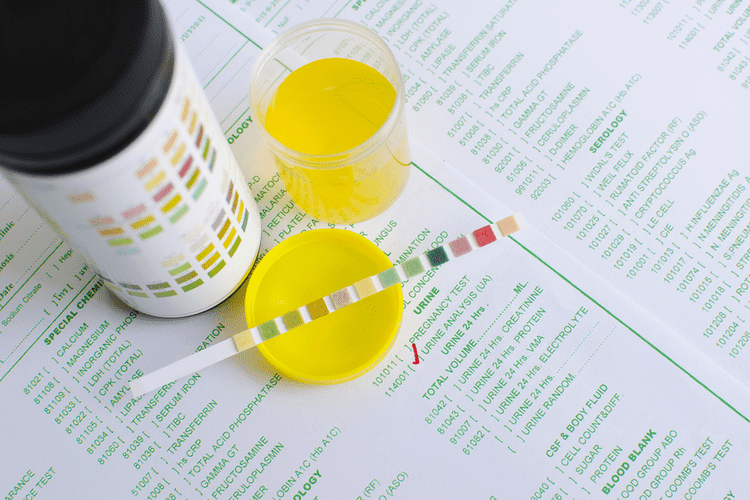An intervention professional, also known as an interventionist, also could direct an intervention. It sometimes includes a member of your loved one’s faith community or others who care about the Oxford House person struggling with addiction. Therapists who specialize in addiction can offer individual, couples, family, or group sessions. These specialists can be found in addiction specialty treatment programs, independent private practice, and other clinical settings. NIAAA’s Alcohol Treatment Navigator can guide you to providers who offer evidence-based behavioral health treatment near you, as well as telehealth and online options. See the Frequently Asked Questions for helpful suggestions.
If your loved one doesn’t accept help
There’s also a list of topics – psychiatry, types of addictions, and mental illness – that patients and families can learn more about. If you or your loved one are struggling with an alcohol use disorder (AUD), help is available. When you’re working to overcome a drinking problem or maintain your sobriety, it’s important to know that you’re not alone. There are resources across the country that are designed specifically for individuals and loved ones impacted by the harmful effects of alcohol. With the guidance of these organizations, you will have the tools for living a healthy and alcohol-free life.
Medications
Then someone else can read the letter at the intervention. History and current activities; sharing from groups, service committees, and individual A.A. Members work together to help the alcoholic who still suffers. There are many opportunities to participate in a variety of ways. The best place to start getting involved is through an A.A.
Alcoholics Anonymous (AA)
Members can participate in face-to-face meetings worldwide and access digital resources such as a 24/7 chat room, message board, and daily online meetings. The organization’s 4-Point Program empowers you to overcome alcoholism, teaches you how to maintain sobriety, and gives you the tools for a balanced life. While not everyone who drinks will become an alcoholic, heavy drinking over a long period of time makes it more likely that a problem will develop. There are many other factors, including genetics and underlying mental disorders, that can contribute to alcoholism. Millions of Americans struggle with an alcohol use disorder of some kind — from binge drinking to addiction.
Addiction treatments were once restricted to in-person meetings, but can now happen anytime and anywhere with a reliable internet connection. Insurance payment optionsfor alcohol treatment vary for each client. Consult with your insurance company to determine coverage. Alternatively,call The Recovery Villageto speak with a representative to learn how alcohol rehab treatment is possible, with or without insurance coverage. Inpatient alcohol rehab treatment is generally more expensive than outpatient treatment.
Even if an intervention doesn’t work, you and others in your loved one’s life can make changes that may help. Ask other people involved not to feed into the destructive cycle of behavior and take steps to make positive change. Often, children, partners, siblings and parents are on the receiving end of abuse, violence, threats and emotional upheaval because of alcohol and drug issues. You can’t control the behavior of your loved one with the addiction. But you can remove yourself — and any children — from a dangerous situation. In support of improving patient care, CME/CE activities offered have been planned and implemented by the Postgraduate Institute for Medicine and NIAAA.
These advanced practice clinicians support patients through the diagnosis and treatment of a variety of conditions. They work closely with doctors and care teams to provide medical services and counseling for mental health, substance misuse, and addiction issues. We offer inpatient and outpatient treatment programs for members with more severe problems with alcohol or drugs. Specific details can vary, but programs typically involve a combination of individual and group therapy, educational sessions, and self-help and peer support meetings. When asked how alcohol problems are treated, people commonly think of 12-step programs or 28-day inpatient rehab but may have difficulty naming other options. In fact, there are a variety of treatment methods currently available.
- Members work together to help the alcoholic who still suffers.
- Trained staff at the centers observe and intervene if someone shows signs of overdose.
- If you or your loved one are struggling with an alcohol use disorder (AUD), help is available.
A health provider can not only diagnose alcoholism, but can refer you to top-rated rehab facilities and walk you through the recovery process. We provide both inpatient and outpatient treatment so you can live alcohol-free. After the detox phase, the patient lives at the facility full-time while receiving therapy,group counseling,medication management,holistic therapies, and other services. Alcohol hotlines and addiction helplines exist specifically to provide free help for alcohol addiction. While different organizations have different overall goals, the primary goal for each is to offer the help the caller is seeking.
- An evidenced-based treatment plan can help you overcome your addiction and regain control of your life.
- In addition, the search tools on the Navigator may not capture every possible higher-quality treatment provider in your vicinity.
- This combination can mirror the «active ingredients» of the best specialty programs.
- This guide is written for individuals, and their family and friends, who are looking for options to address alcohol problems.
- Many people are unaware of the variety of services available to protect the health of people who use alcohol or drugs.
- We’ll show you how to search trusted directories for specialists near you.
Visit the following websites to learn about The Recovery Village’s network of rehabilitation facilities. Each center is ready to help people learn how to cope with their Ambien addiction and uncover the root causes for their substance use disorder. The following is a list of addiction crisis hotline numbers that provide assistance with various addictions, emergencies, and disorders. This list includes a drug and alcohol hotline since we know many people may be struggling with both of these substances simultaneously. Knowing what is in the drugs you use can help you make choices to reduce your risk of overdose or injury. Rapid test strips for fentanyl and xylazine are available for the public to order and at some harm reduction organizations.
How can I prevent alcohol use disorder?

If your goal alcohol addiction help is to reduce your drinking, decide which days you will drink alcohol and how many drinks you will allow yourself per day. Try to commit to at least two days each week when you won’t drink at all. Are you ready to quit drinking or cut down to healthier levels?
The focus of our 24-hour alcohol hotline is to better understand the specific situation you are faced with. We offer treatment programs such as detoxification and rehabilitation, but to suggest any course of action, the first step is understanding. If you think you may have alcohol use disorder, you’re not alone. Realizing you may have an issue is the first step toward getting better, so don’t hesitate to talk to a healthcare provider. They’ll recommend treatments and resources to help you recover from alcohol use disorder. If you’re receiving counseling, ask your provider about handling high-stress situations when you may feel like you need some additional mental health support.

We are unable to switch you to this area of care
Most AUD treatment is provided in outpatient settings. 2,23 Detox alone does not constitute treatment for AUD, however. Continued care in residential or outpatient settings or both is often needed to sustain abstinence and promote long-term recovery. Across settings, a course of AUD treatment is likely to be measured in months, not days or weeks. While getting sober is an important first step, it is only the beginning of your recovery from alcohol addiction or heavy drinking. Today there are more options available for treating alcohol use disorder (AUD) than ever before.